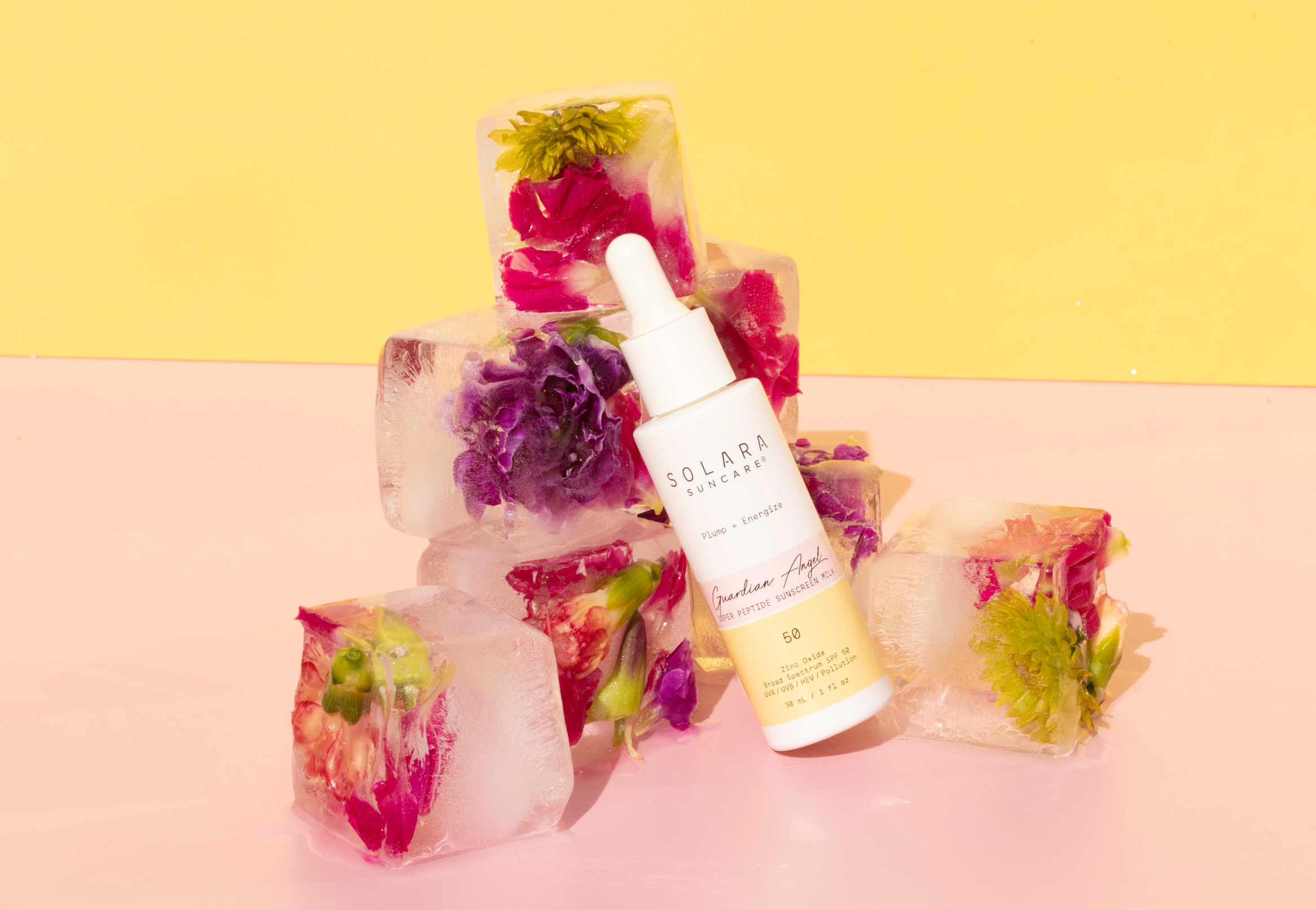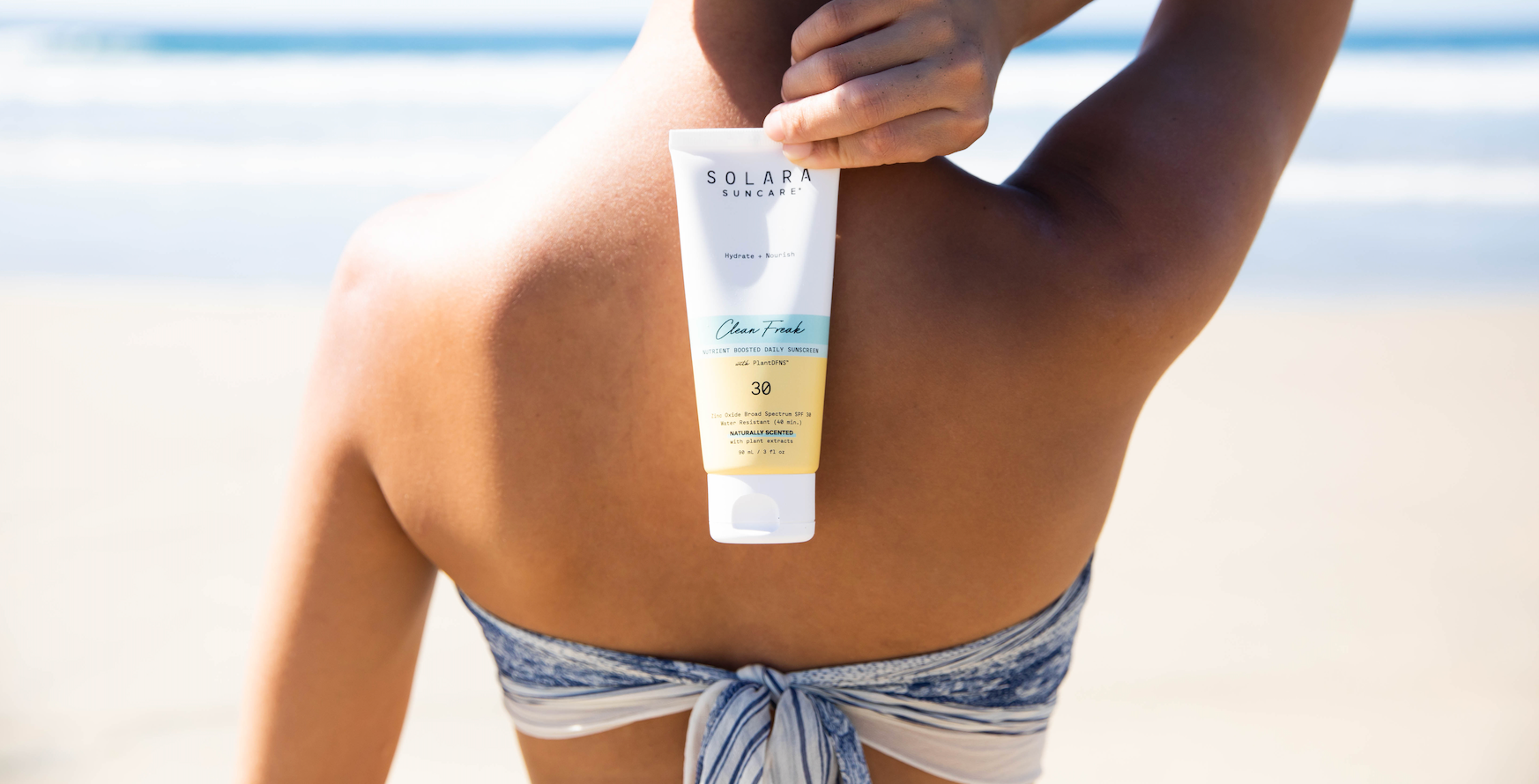
#Sunspiricies: Common Sunscreen Myths, Busted for Melanoma Awareness Month
When it comes to being a conscious consumer, we believe that knowledge really is power. So, this Melanoma Awareness Month, we’re shedding light on the top common sunscreen + sun safety myths we see the most.
Myth: A higher SPF number means I can spend more time in the sun.
The truth is…SPF 30 will protect you from around 97% of UVB rays, whereas an SPF 50 means protection from about 98% of UVB rays. Yes, you read that right. The difference between SPF 30 and 50 is actually only about 1%. Although SPF 50 does give you slightly more defense, and we have SPF 50 products for this reason, wearing SPF 50 or higher should not come with a false sense of extra protection. You should always reapply SPF (no matter the SPF value) every 2 hours, unless swimming or sweating, when you must reapply sooner, according to the product label!
Myth: You don’t get Vitamin D when you wear SPF
The truth is…according to the Skin Cancer Foundation, “Studies have never found that everyday sunscreen use leads to vitamin D insufficiency. In fact, people who use sunscreen daily can maintain their Vitamin D levels.” This is because no matter how much sunscreen you use, some of the sun’s UV rays still reach your body. SPF 30 keeps out 97 percent and SPF 50 filters out 98 percent. This leaves anywhere from 2 to 3 percent reaching your skin, even with high-SPF sunscreens. We’re personally huge fans of getting 10-15 minutes of sun exposure each day before applying your sunscreen – we believe the sun isn’t something to be afraid of and the amazing benefits of Vitamin D to health and mood are important to overall wellness.
Myth: Mineral SPF works the same as Chemical SPF.
The truth is…mineral sunscreen works in a different way than chemical sunscreen. Mineral sunscreen (also known as physical) sits on the surface of your skin and acts as a reflective shield. Because of the gentle, inflammation-fighting nature of zinc oxide – our hero active ingredient – it’s ideal for people with sensitive + acne-prone skin and children (there’s a reason it’s been used in diaper creams and calamine lotion for years!) When our founder created Solara’s very first SPF, Clean Freak, she was solving a need for her children’s sensitive + allergic skin, so mineral-only was a no-brainer.
Chemical sunscreens absorb into your skin and reflect back rays as heat. Which is why, in some cases, it can cause irritation and redness for those with sensitive skin.
Additionally, a small randomized clinical trial published in May 2019 in the Journal of the American Medical Association (JAMA) revealed that four popular sunscreen chemicals (avobenzone, oxybenzone, octocrylene, and ecamsule), some of which have been linked to possible hormone disruption, are absorbed into the bloodstream at significantly greater levels than 0.5 nanograms per milliliter (ng/mL). That’s above the amount at which the FDA requires topical medications to undergo safety studies to determine possible toxic effects. While wearing any sunscreen you love every day is critical, it's important to also be aware of specific ingredients, ongoing studies and have the information to choose what’s right for your wellness routine.
Myth: Vitamin D has no effect on physical health and mental health
The truth is…according to the Skin Cancer Foundation, Vitamin D helps keep your bones strong by regulating calcium levels. People deficient in this sunshine vitamin can suffer symptoms including muscle aches, muscle weakness and bone pain. Similarly, and why we LOVE a healthy dose of sunshine, is that Vitamin D is as vital for mental health as physical health. There is sufficient research to show that not having enough Vitamin D can lead to depression-like symptoms, so getting that daily time in the sunshine really can help keep the doctor away!
Myth: You can wear a daily SPF to the pool, beach, or on vacay.
The truth is…daily sunscreen should be worn when you don’t plan to swim or sweat. It’s perfect protection for driving to work or picking the kids up from carpool. However, if you plan to swim in the pool, splash in the ocean or pump out a sweaty outdoor workout, look for water resistant (sport) sunscreens to ensure proper protection.
Pro Tip: Be sure to look for this distinguishing language before beach + pool days!
Myth: My makeup has SPF in it, so I don’t have to apply face sunscreen.
The truth is…while it's certainly a good thing to have SPF in your foundation, it's important to remember that alone is typically not enough to protect your skin fully because, well, you're likely not using enough of makeup (¼-½ teaspoon for face and neck) to get the full SPF value. You also may not be getting BROAD SPECTRUM protection. You must always look for this wording on the package to ensure coverage from both UVA and UVB rays. The best way to protect against premature damage is to layer – sunscreen first, makeup on top.
Myth: I don’t really need sunscreen on cloudy days.
The truth is…UV rays can break through the clouds imparting just as much UV as a sunny day (sometimes more)…but worse because you can’t feel it like you do on a hot day which can prolong exposure. Were you ever shocked to discover a sunburn on an overcast day spent outdoors? You’re not alone. The best rule of thumb is to use a dedicated sunscreen you trust every day.
Myth: Mineral sunscreen is the only reef safe option.
The truth is…no sunscreen is completely safe for our reefs or oceans and there is no official third-party seal, yet! However, credible marine experts have shared that NON-NANO (larger than 100 nanometers) zinc oxide is safer for reefs and marine life. This is where “reef safe” is derived and why formulating with non-nano particles is important to us. Experts share that NANO zinc oxide (smaller than 100 nanometers) and certain chemical sunscreen actives, can be ingested by marine animals causing internal damage and can react with UV rays to generate hydrogen peroxide that’s often toxic to phytoplankton—a vital nutrient to many reef and coral species. Always read your labels. Some chemical sunscreen active ingredients have also been banned by a growing list of government jurisdictions (shout out Hawaii Act 104), for this reason.
Myth: Vitamin D has no effect on physical health and mental health
The truth is…according to the Skin Cancer Foundation, Vitamin D helps keep your bones strong by regulating calcium levels. People deficient in this sunshine vitamin can suffer symptoms including muscle aches, muscle weakness and bone pain. Similarly, and why we LOVE a healthy dose of sunshine, is that Vitamin D is as vital for mental health as physical health. There is sufficient research to show that not having enough Vitamin D can lead to depression-like symptoms, so getting that daily time in the sunshine really can help keep the doctor away! Myth 10: I don’t need to wear sunscreen if I’m not outside during the day. The truth is…UV rays can also pass through windows, like while driving. Because of this, it's important to wear SPF daily. The majority of UV hand aging (and damage to the left side of the face) occurs while driving.
Myth: Sunscreen will make you break out.
The truth is…not always. A final formulation could contain traditionally comedogenic ingredients, but in the total sum of the formula pose no issue at all. When it comes to caring for acne-prone and sensitive skin, we lean on zinc oxide only protection because it’s a skin-calming ingredient that tends to reduce inflammation. Avobenzone, homosalate, octocrylene, octisalate, octinoxate and oxybenzone can make some products “clear” but are also potentially irritating for some people with sensitive or acne-prone skin, according to dermatologists. If you have acne prone or sensitive skin, also look for products that are Dermatologically Tested, Dermatologist Approved and Clinically Tested Safe for Sensitive Skin…plus fragrance- and essential oil-free with no drying alcohols.



